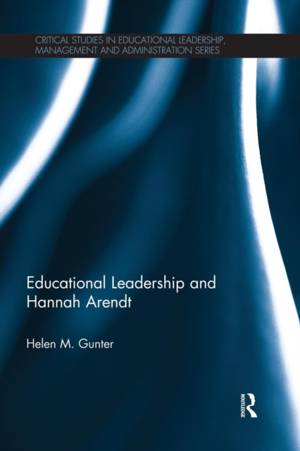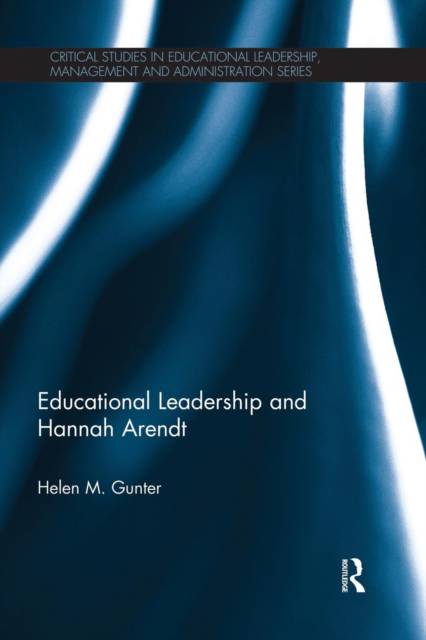
- Afhalen na 1 uur in een winkel met voorraad
- Gratis thuislevering in België vanaf € 30
- Ruim aanbod met 7 miljoen producten
- Afhalen na 1 uur in een winkel met voorraad
- Gratis thuislevering in België vanaf € 30
- Ruim aanbod met 7 miljoen producten
Omschrijving
The relationship between education and democratic development has been a growing theme in debates focussed upon public education, but there has been little work that has directly related educational leadership to wider issues of freedom, politics and practice. Engaging with ELMA through the work of Hannah Arendt enables these issues of power to be directly confronted. Arendt produced texts that challenged notions of freedom and politics, and notably examined the lives of people, ideas and historical events in ways that are pertinent to the purposes and practices of education.
This significant volume examines the main texts in the Arendt library and explains each of the key ideas and how they can enable critical thinking about knowledge production and practice in educational leadership. The analysis draws upon a range of exemplars and empirical projects from the field of educational leadership, investigating utility issues regarding Arendt's ideas, and engaging with the debates concerning her insights and contribution.
Included in the book:
-using Arendt to think about ELMA
-the relationship between policy and practice, and organisation and leadership
-critiques of the vita activa and vita contemplativa
-thinking with and against Arendt.
Gunter uses the work of Arendt to challenge the purposes and practices of intellectual work, with a view to developing perspectives on the responsibility for research and ideas. The book will be of value to all those working and researching in the field of Educational Leadership, Management and Administration.
Specificaties
Betrokkenen
- Auteur(s):
- Uitgeverij:
Inhoud
- Aantal bladzijden:
- 160
- Taal:
- Engels
- Reeks:
Eigenschappen
- Productcode (EAN):
- 9781138926646
- Verschijningsdatum:
- 9/06/2015
- Uitvoering:
- Paperback
- Formaat:
- Trade paperback (VS)
- Afmetingen:
- 155 mm x 231 mm
- Gewicht:
- 249 g

Alleen bij Standaard Boekhandel
Beoordelingen
We publiceren alleen reviews die voldoen aan de voorwaarden voor reviews. Bekijk onze voorwaarden voor reviews.











